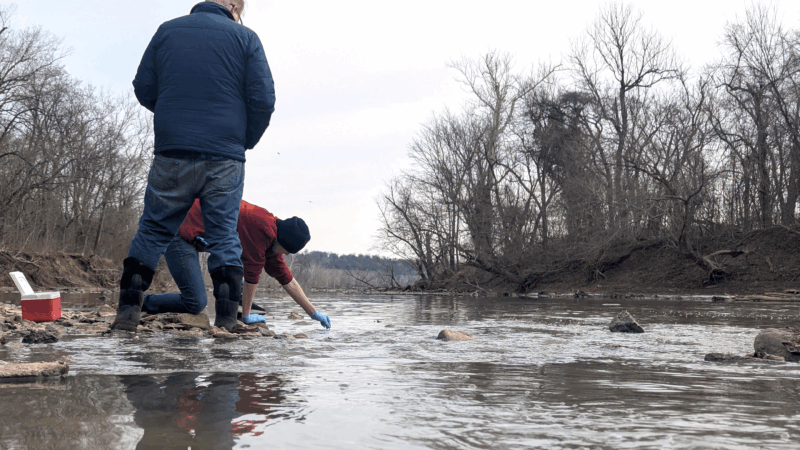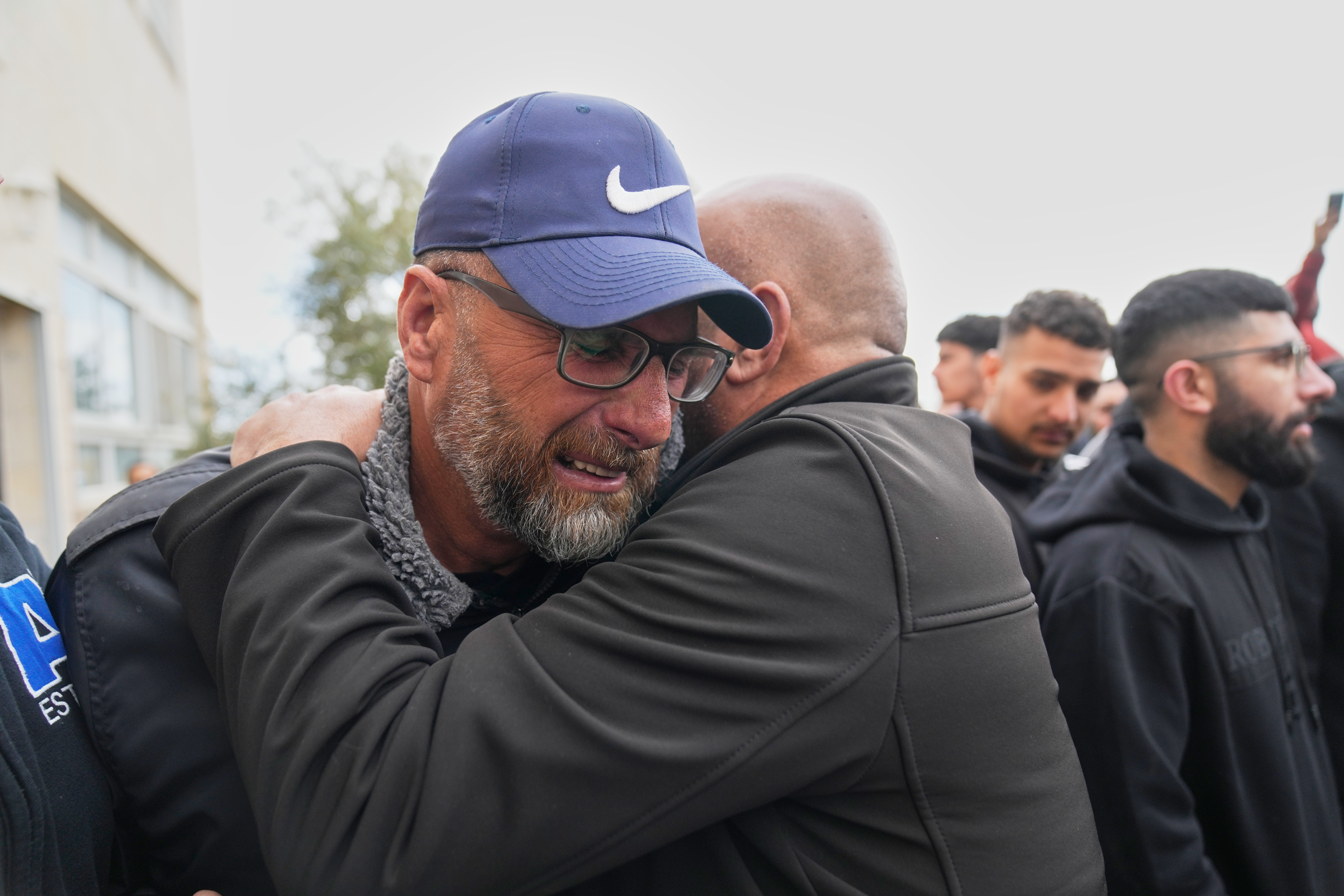Movie star and visionary Robert Redford has died at age 89
Movie star and film visionary Robert Redford died at his home in Utah on Tuesday. He was 89 years old.
Inevitably, one word comes up when discussing Robert Redford: golden. Redford gleamed through more than 80 movies, many of them classics. His life included decades of activism and founding the Sundance Institute that profoundly shaped decades of independent film.
Fittingly, Redford’s history started in Los Angeles. His working-class family was the only white one on their mostly Mexican block. As a kid, Redford often misbehaved in school.
“I was constantly at the blackboard, either being punished for things I’d done wrong, and having to do repetitions of math up on the board, or I was drawing, telling a story,” he told NPR in 2003.
Redford dreamed of becoming an artist. He attended the University of Colorado, Boulder, on a baseball scholarship. He then worked on an oil rig to save up enough money to study painting in Europe for a year. When he came back to the U.S. to enroll in art school, at the Pratt Institute in New York, it was Redford’s own beauty that took up all the air in the room, says film critic Carrie Rickey.

“They said when he walked into the cafeteria, you could drop a pin because everyone was looking at him,” she says, recalling her interviews with people who knew Redford as a student. “I think he was profoundly ambivalent about his looks and wanted to communicate that.”
Redford found his way into the theater through an interest in set design, and he was soon starring on Broadway in Neil Simon’s hit Barefoot in the Park, alongside a Hollywood princess, Jane Fonda. The two reprised their roles in the 1967 movie. Along the way, Redford appeared in a number of the era’s best television shows, such as Playhouse 90, Route 66 and Alfred Hitchcock Presents, and he memorably played Death in a classic episode of The Twilight Zone. But Redford got his big break when Paul Newman and writer William Goldman campaigned for Redford to co-star in Butch Cassidy and the Sundance Kid, over the studio’s objections. (Executives found Redford’s looks generic, according to Goldman, and attempted to cast better-known actors, such as Marlon Brando, Steve McQueen and Warren Beatty.)
Butch Cassidy and the Sundance Kid turned out to be the most successful film of 1969, and it led to a string of other hits: The Sting, The Way We Were, All The President’s Men and Jeremiah Johnson, which remained one of the actor’s personal favorites. But Redford longed for a career behind the camera. He experimented with distributing documentaries directly to college film societies in the early 1970s. His debut film as a director in 1980, Ordinary People, won Redford an Oscar for best director and best picture (infamously beating Martin Scorsese and Raging Bull).
Throughout the 1980s, Redford remained one of Hollywood’s most popular and bankable actors. He starred in some of the era’s lushest period pictures, such as The Natural and Out of Africa, one of the films he made with Meryl Streep. But unlike Streep, Redford never won a single Oscar for acting, noted critic Carrie Rickey.
“He tended to be a minimalist on screen, often interrupting himself to make it sound like actual speech,” Rickey observed. “Even as he continued starring in movies, with his inimitable blend of shadowed sunshine, Redford’s offscreen ambitions found their apotheosis with the Sundance Institute. He transformed the industry by founding it in 1981. It became a launchpad for generations of film artists, too many to name, including directors Quentin Tarantino, Steven Soderbergh, Kevin Smith and Robert Rodriguez.

“He changed so many lives,” Rickey observed. “And he changed movies, both as a director and as the head of Sundance. Who else can say that?”
Over the years, Sundance evolved into an independent powerhouse, with prestigious programs for theater, music, Native American film and documentaries that helped produce Oscar honorees from American Dream to When We Were Kings, Summer of Soul, Citizenfour and Crip Camp.
“All the films I’ve made are about the country I live in and grew up in,” Redford told NPR in 2013. He was not interested in America as black and white or blue or red, he said. “I was interested in the gray part, where complexity lies.”
Redford said he thought celebrity led to cultural oversimplification. “It’s got a dangerous side to it,” he said. “I think that people should be paying a lot more attention to issues, rather than who’s the Top 10 this, or the Top 5, or who’s the sexiest or most beautiful or this or that.”
The things Redford cared about included the environment and Indigenous rights. A passionate and private man, he was ultimately what he always strove to be — an artist.
What I learned watching every sport at the Winter Olympics
Sit down with pop culture critic Linda Holmes as she watches the 2026 Winter Games. She is exhausted by cross-country, says "ow ow ow" during moguls, and makes the case, once and for all, for curling.
Scientists worry about lasting damage from Potomac sewage spill
Drinking water around the District of Columbia hasn't been contaminated. But scientists say the environmental damage could be severe.
Using saliva to detect disease holds promise, but it’s not perfected yet
Easier than a blood test, saliva tests have the potential to detect cavities, infections and even cancer. But a lack of insurance coverage and other obstacles stand in the way of wider use.
What worked and what didn’t with a cellphone ban at a Kentucky school
Keeping students off their devices is the new norm in many schools. We talked to students and educators at one Kentucky school to see how it's working.
Israeli settlers kill 19-year-old Palestinian American, officials and witnesses say
Israeli settlers in the occupied West Bank shot and killed a Palestinian American man during an attack on a village, the Palestinian Health Ministry said.
Trump says he doesn’t know if aliens are real but directs government to release files on UFOs
President Donald Trump said Thursday that he's directing the Pentagon and other government agencies to release files related to extraterrestrials and UFOs because of "tremendous interest."







